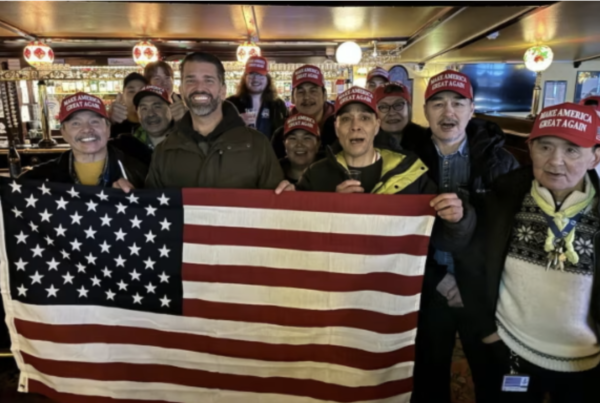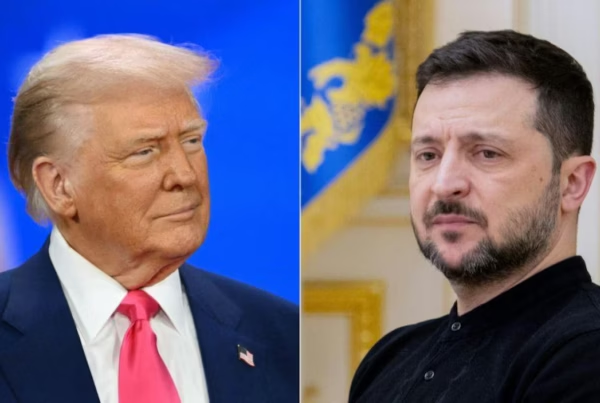Since Great Britain relinquished Hong Kong to China in 1997, the metropolis has been navigating a precarious balance between autonomy and Chinese rule. To govern this relationship, the Basic Law — Hong Kong’s pseudo-constitution — was negotiated in the decade preceding the handover. Grounded in the principle of “one country, two systems,” the Basic Law mediates the complicated distribution of power between a democratic Hong Kong and Beijing’s authoritarianism. On March 23, a controversial new law was added to the text: Article 23.
Hong Kong’s new Safeguarding National Security Bill, commonly known as Article 23, revises existing national security laws, introduces new criminal offenses, and extends police powers. These changes are primarily concerned with treason, insurrection, espionage, sabotage, and external interference into Hong Kong’s domestic affairs.
The law’s implementation comes two decades after it was first put forward in 2003. Back then, half a million Hongkongers took to the streets to protest Article 23, and it was withdrawn. In the time since, other legislation has been passed, undermining civil liberties in Hong Kong. In 2020, for instance, the National Security Law gave Beijing increased power over the region and imposed severe new restrictions on protests. When Article 23 was put forward this year, two decades after it was initially proposed, it passed with little public backlash, a reflection of the government’s success in squashing dissent.
Article 23 systematically widens the scope of existing national security laws. Part 4 of the law, which deals with state secrets and espionage, includes “secret[s] concerning the economic or social development of China or the [Hong Kong Special Administrative Region]” in its list of types of state secrets. The law also allows for the Chief Executive to unilaterally deem information a “state secret.” This broad definition, paired with the significant discretionary power available for enforcement, has concerned human rights advocates. Amnesty International criticized the changes to state secret laws, claiming that the new definition meant that “in practice pretty much anything could be considered a ‘state secret.’” This vague definition is particularly worrisome given that the bill extends jail terms for those convicted of acquiring, possessing, or disclosing these “secrets.”
This restrictive law also includes new statutes concerning insurrection. In the public consultation document lawmakers provided to Hongkongers, the Security Bureau claimed that “the HKNSL and other laws in force in the HKSAR are inadequate in fully addressing acts and activities endangering national security.” The Bureau cited the 2019 protesters, who they claimed were “vigorously advocat[ing] acts of secession, including ‘Hong Kong independence,’ ‘self-determination’ and ‘nation-building,’” as examples of threatening activity that could not be sufficiently addressed by existing laws.
Another concerning element of the new legislation is the expansion of police powers combined with a paring back of detainees’ rights. With magistrate approval, the police can now detain individuals for up to 16 days without having filed charges, a sharp increase from the previous 48 hour limit. Furthermore, upon approval by a magistrate, an arrested suspect can be prevented from conferring with their chosen lawyer. Those accused of crimes in Hong Kong who have left the country can now have their passports and other qualifications revoked, and the new law also allows for bans on leasing property or funding of these “absconders.”
The law immediately attracted international backlash, both from other governments and from international watchdogs. United States Secretary of State Anthony Blinken warned that the “vaguely defined provisions” of Article 23 “could be used to curb dissent.” British Foreign Secretary David Cameron voiced similar fears, saying that “the toughening of penalties for speech crimes and the use of the broadly defined term ‘state secrets’ will inhibit freedom of speech, of expression and of the press,” while the implementation of such laws without mechanisms to prevent abuse raises fears of arbitrary state repression. UN High Commissioner for Human Rights Volker Turk echoed the sentiment, noting the unusual speed of the legislative process used to pass the bill. The public consultation process for Article 23 was just four weeks long, and the Legislative Council waived the traditional 12 day notice period designed to allow legislators to review new motions.
Unsurprisingly, Chinese officials have responded sharply to international criticism, insisting that the law will only concern a sparse few. A spokesperson for the Chinese embassy in the United States claimed that the bill was “targeted at a tiny minority of individuals that are involved in offences seriously jeopardizing national security.” In a near identical statement, Mao Ning of the Chinese Ministry of Foreign Affairs claimed that “the legislation on Article 23 targets a handful of criminals gravely endangering our national security” while protecting Hongkongers’ civil liberties. Chinese officials have tried to paint this law as a narrowly targeted security measure, but the reality of Article 23’s provisions undermines their claim. By expanding state power to encroach on civil liberties in the interest of national security, Hong Kong’s new Article 23 escalates the threat to the nation’s fragile democracy.
Other posts that may interest you:
- The Trouble with ‘Ecocide’
- Carbon dioxide removal – hit or miss?
- Local Victories for Turkish Opposition — A Sign of Hope?
- Are France and Japan a Mismatch Made in Heaven?
- A Reflection on Dark Tourism
Discover more from The Sundial Press
Subscribe to get the latest posts sent to your email.





